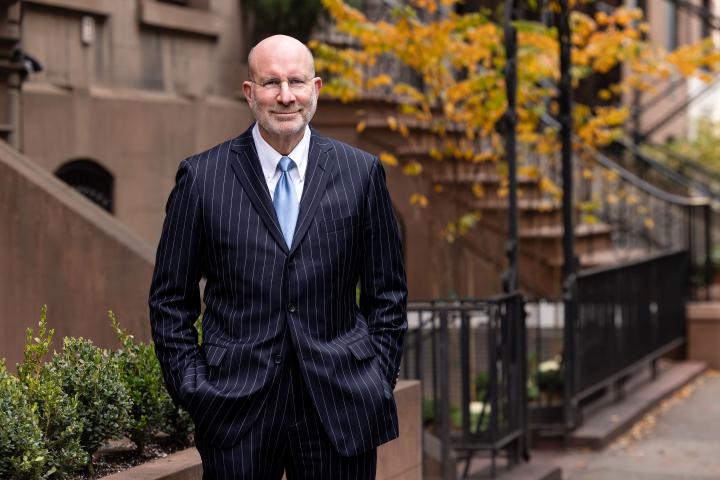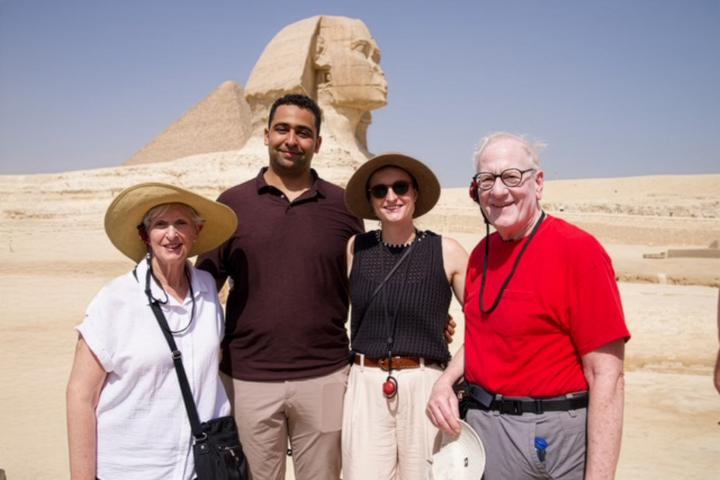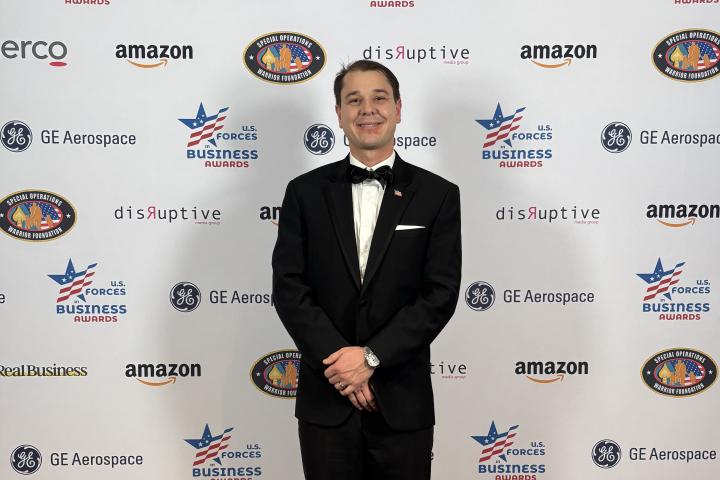
Choosing to Listen: An HR Approach
The pandemic continues to impact workplace culture already disrupted by technology, a volatile economy and shifting cultural values that enflamed long-simmering issues of work-life balance, burnout, gender and race inequalities.
Threats buffeting workers can be overwhelming, and HR professionals trying to help broker solutions for them while advancing the C-suite’s business vision face profound challenges, says Derek Cullimore, EMHRM ’22.
“If somebody’s going to be in the human resources space and be successful, they need to be passionate about helping people solve problems, reaching deep and helping people be heard.”
Cullimore credits ILR’s Executive Master of Human Resource Management degree program with helping him reconcile competing hats worn by HR leaders. He learned to “stop trying to shed hats and start embracing them,” particularly coaching and mentoring hats. Cullimore is vice president of people and culture at Crucial Learning, a learning and development organization based in Salt Lake City. It works with businesses to help them solve communication gaps and to effectively conduct difficult conversations.
His EMHRM cohort learned from ILR professors who shared research and frameworks for applying their findings on the ground and from a Cornell network of corporate leaders, faculty and alums who meet with the group, Cullimore said. Guidant Financial Vice President of Culture and Talent Cory Sanford, a 2019 EMHRM graduate, continues to be a sounding board for him, Cullimore said, illustrating how relationships formed during the degree program endure.
A change management course taught by Professor Christopher Collins helped him prioritize changes and included a research-based blueprint for implementing them. “Use it as you would like,” Cullimore recalls Collins saying.
Progressing through the 15-month program, he learned how to help his organization navigate the switch from a one-building organization to an entirely virtual workplace, Cullimore said.

He said the EMHRM’s three on-campus, seven-day sessions helped cement a supportive network among HR peers. “There aren’t a lot of us in the workplace. We’re all in the same battle, and EMHRM opened a network. Retaining talent. layoffs, inflation, adapting to a virtual workplace – HR leaders are stressed.”
“We appreciate the battle we’re all in together. We are in the trenches together, learning how to navigate the culture,” he said. “It’s healthy for us to reach out to each other. ‘Can you get on the phone and talk? How would you all solve this?’ These relationships will last forever.”
It’s been a struggle at many organizations for human resources to get a seat at the C-suite table, Cullimore said. But, 20-plus years after joining executive-level leadership, top HR people continue to explore where the sweet spot lies between helping employees thrive while also driving business objectives.
Expectations around HR’s role in influencing positive change have heightened, he said.
“I’ve seen such an evolution in the past five years. More than ever, HR is being scrutinized,” he said. “What we do with that seat will be crucial,” he said. “Do we just manage compliance, or do we put ourselves forward and tie people initiatives to business strategy?”
Cullimore said he chooses to listen to employees. “I put myself in everyone’s shoes.”
In a Harvard Business Review piece synopsizing their studies, Cullimore and Joseph Grenny discuss how HR lost workers’ trust and how to regain it. Grenny co-founded Crucial Learning, the learning company where Cullimore leads HR.
“Respondents said they fear their HR leader doesn’t have the power to influence change and, even if they did, the needs of the company would take precedent. But what can be done? How can the HR team rebrand itself from one that toes the company line to one that puts employees – and their concerns – first?”

“The bottom line is that everyone deserves to have their voice heard and to not be silenced, especially as it relates to their employee experience,” they write. "Yet, most people struggle to speak up when it comes to emotional or high-stakes conversations. This is where HR can, and should, play a role, helping to advocate for employees.”
Cullimore and Grenny also wrote a Harvard Business Review piece entitled “How to Have Those Difficult Return-to-Office Conversations.”
Before committing to the 15-month EMHRM degree program, Cullimore looked at what it meant for his work-life balance and knew he was up for the challenge.
Next, he went to his wife and five children.
“I needed the commitment from the people in my inner circle. Everybody in your inner circle needs to be on board,” he said. “We committed as a family. It’s all our journey.”
To those considering the EMHRM program, Cullimore says, “I did it to become a better HR professional. You will be invested and be a sponge. If you’re a planner, you can set aside time. You can do anything for 15 months. It’s a sacrifice, but also an investment. You’ll be better off for going through it.”
“My whole inner circle benefitted, and the learning continues.”


